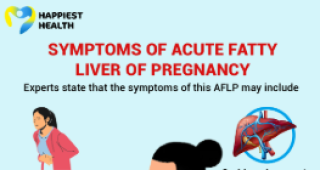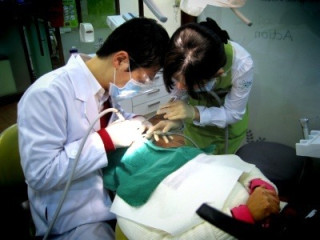Navigating High Altitude Vacations During Pregnancy - What You Need to Knowcreated at Sep 25, 2009 1,607 1,607 Understanding the ChallengesPregnancy brings many changes, |
Navigating Diet Shakes Safely During Pregnancyupdated at Nov 13, 2025 1,440 1,440 Understanding Diet Shakes and PregnancyDiet shakes are formulated to substitute meals, |
Debunked - Microwave Radiation and Pregnancy Safety Mythupdated at Nov 29, 2024 1,562 1,562 The myth that microwave ovens harm pregnancies through radiation is debunked by scientific consensus.Microwave ovens emit non-ionizing radiation, |
Balancing Act - Navigating Vitamin C Intake During Pregnancyupdated at Nov 29, 2024 1,447 1,447 Maintaining adequate Vitamin C intake during pregnancy is crucial for fetal growth and development, |
The Morning Cup - Navigating Coffee Consumption During Pregnancyupdated at Nov 29, 2024 1,417 1,417 Enjoying coffee during pregnancy requires mindful moderation.While small amounts of caffeine (around 200mg or less per day, |
Perm during pregnancyupdated at Nov 08, 2025 1,534 1,534 Perms During Pregnancy: What You Need To KnowGetting a perm during pregnancy is generally considered safe, |
Spicy foods during pregnancycreated at Dec 23, 2009 1,471 1,471 While cravings for spicy food are common during pregnancy, |
Navigating Produce Choices - Organic vs. Nonorganic for Pregnant Womenupdated at Nov 29, 2024 1,292 1,292 For pregnant women, |
Debunking Myths: Antibiotic-Treated Livestock Meat and Pregnancycreated at Nov 18, 2009 1,732 1,732 Pregnant individuals face numerous dietary considerations, |
Deli Meats and Pregnancy: A Guide to Safe Consumptioncreated at Nov 18, 2009 1,931 1,931 It's generally advised to avoid consuming precooked meats such as deli meats, |
The Lowdown on Caffeinated Sodas During Pregnancycreated at Nov 18, 2009 1,522 1,522 The short answer is: limit or avoid caffeinated sodas during pregnancy.During pregnancy, |
Understanding the Risks - Cured and Smoked Foods in Pregnancy and Beyondcreated at Nov 18, 2009 1,397 1,397 It's advisable to limit your consumption of smoked and cured foods, |
Navigating Blackened Foods During Pregnancy - A Guide to Safe Indulgenceupdated at Nov 29, 2024 1,681 1,681 During pregnancy, |
Navigating a Vegan Diet During Pregnancy: What You Need to Knowcreated at Nov 18, 2009 1,642 1,642 A vegan diet can be healthy, |
Sweet Satisfaction - Navigating Chocolate Cravings During Pregnancycreated at Nov 18, 2009 1,459 1,459 Chocolate Cravings: A Common Pregnancy PhenomenonCraving chocolate during pregnancy? You're definitely not alone! Many expectant mothers experience heightened cravings for this sweet treat.Understanding why these cravings occur and how to manage them is ke... |
The Scoop on Unpasteurized Juices During Pregnancy - What You Need to Knowcreated at Nov 18, 2009 1,708 1,708 Understanding the Risks of Unpasteurized JuicePregnant women should avoid unpasteurized juices completely.These juices may harbor harmful bacteria like Listeria and E.coli, |
Debunking Myths - Drinking Milk from Cows Given BST during Pregnancycreated at Nov 18, 2009 1,457 1,457 The use of bovine somatotropin (BST), |
Bleaching Teeth during Pregnancycreated at Nov 17, 2009 1,613 1,613 While some teeth whitening products are considered safe during pregnancy, |
Swimming Safely - Chlorinated Pools and Pregnancycreated at Sep 25, 2009 1,505 1,505 Are you pregnant and considering swimming in a chlorinated pool? It's a common concern, |
Safety First - Bumper Cars and Pregnancy Don't Mixcreated at Sep 25, 2009 1,817 1,817 Safety First: Bumper Cars and PregnancyRiding bumper cars while pregnant is generally discouraged due to the potential risks associated with impact and jarring movements.The health and safety of both the mother and developing fetus are paramount, |
Riding Horseback During Pregnancy - What You Need to Knowcreated at Sep 25, 2009 1,764 1,764 Horseback riding during pregnancy is a complex issue with no simple answer.The decision to continue or begin riding requires careful consideration and depends heavily on several individual factors.*Crucially, |
Is Tennis Safe During Pregnancy? Understanding the Risks and Recommendationscreated at Sep 25, 2009 1,881 1,881 Continuing to play tennis during pregnancy can be safe for many women, |
Ice-skating or Rollerblading While Pregnant - Weighing the Risks and Benefitscreated at Sep 25, 2009 1,811 1,811 Continuing to ice-skate or rollerblade during pregnancy depends heavily on your fitness level before pregnancy, |
Rock Concerts During Pregnancy: A Guide for Expecting Parentscreated at Sep 25, 2009 2,137 2,137 Going to a rock concert while pregnant is a personal decision.Your individual health, |
Understanding Liver Infections During Pregnancy - Risks and Precautionscreated at Sep 25, 2009 1,689 1,689 Pregnancy is a period of significant physical and emotional changes, |
Riding the Trails Safely - Tips for Mountain-Biking During Pregnancycreated at Sep 25, 2009 1,368 1,368 Mountain biking during pregnancy presents a complex set of considerations, |
The Safety when sitting in a Hot Tub during Pregnancycreated at Sep 25, 2009 1,751 1,751 Pregnancy and Hot Tub Use: A Cautionary TaleSitting in a hot tub during pregnancy is generally not recommended and can pose significant risks to both the mother and the developing fetus.The primary concern is the potential for overheating. Why Hot Tubs Are... |
When your heart rate over 140 beats per minute during pregnancycreated at Sep 14, 2009 1,399 1,399 .Elevated Heart Rate During Pregnancy: What You Need to KnowA heart rate exceeding 140 beats per minute (bpm) during pregnancy warrants prompt medical attention.While a slight increase in heart rate is expected due to the physiological changes of pregnanc... |
Safe Abdominal Exercises for Pregnancy - Alternatives to Sit-ups and Crunchescreated at Sep 04, 2009 1,582 1,582 Safe abdominal exercises during pregnancy focus on maintaining core strength and stability without putting excessive pressure on the rectus abdominis (the six-pack muscles) which can be stretched and weakened during pregnancy.The goal is to support the gro... |
Navigating Toddler Care While Pregnant - Tips for Safely Carrying Your Little Onecreated at Sep 01, 2009 1,513 1,513 Navigating Toddler Care While PregnantNavigating toddler care while pregnant is a significant challenge, |
Tips for Managing Being on Your Feet All Day While Pregnantcreated at Sep 01, 2009 1,463 1,463 To manage being on your feet all day during pregnancy, |
Can You Use Chemical Hair Removers like Nair During Pregnancy?updated at Nov 11, 2025 1,409 1,409 Many pregnant women have questions about the safety of using chemical hair removers like Nair during pregnancy.The health of the baby is always the top priority.Here's what you should know: .Absence of Evidence Linking Chemical Hair Removers to Birth Defec... |
Treating Toenail Fungus Safely During Pregnancyupdated at Nov 29, 2024 1,630 1,630 Treating toenail fungus during pregnancy requires caution as many common antifungal medications are not recommended due to potential risks to the developing fetus.Safe options are limited and often involve topical treatments with mild antifungal agents, |
The Importance of Teeth Cleaning During Pregnancyupdated at Nov 13, 2025 1,524 1,524 Maintaining good oral hygiene transcends cosmetic benefits during pregnancy; it's a cornerstone of maternal and infant health.A compelling body of research establishes a direct correlation between periodontal (gum) disease in pregnant women and an elevated... |
Is Getting a Tattoo During Pregnancy Safe? Here's What You Need to Knowupdated at Nov 09, 2025 1,836 1,836 Getting a tattoo during pregnancy is generally not recommended by healthcare professionals.While hard evidence demonstrating that tattoo ink directly harms the fetus is lacking, |
Is Getting a Mud Bath Safe During Pregnancy? Here's What You Need to Knowupdated at Nov 11, 2025 1,922 1,922 Mud baths can sound like a relaxing and therapeutic experience, |
Bleaching my teeth during pregnancyupdated at Nov 08, 2025 1,546 1,546 Teeth Whitening During Pregnancy: A Cautionary TaleBleaching your teeth while pregnant is generally not recommended by dental professionals.While the desire for a brighter smile is understandable, |
Is Bleaching Body Hair Safe During Pregnancy?updated at Nov 09, 2025 1,697 1,697 This post examines the safety of bleaching body hair during pregnancy, |
Navigating Manicures During Pregnancy - What You Need to Knowupdated at Nov 29, 2024 1,523 1,523 During pregnancy, |



































